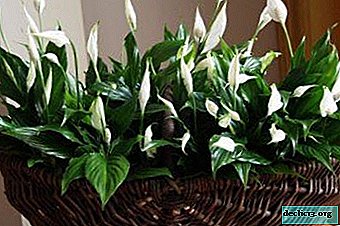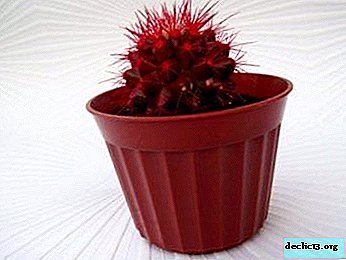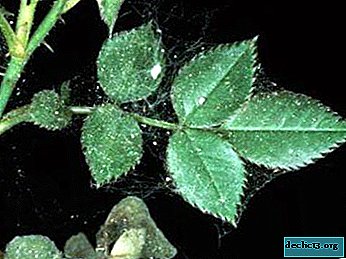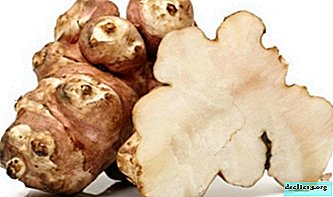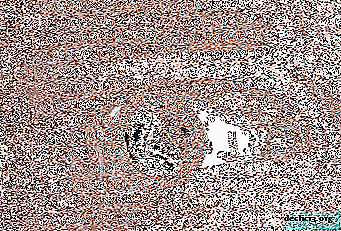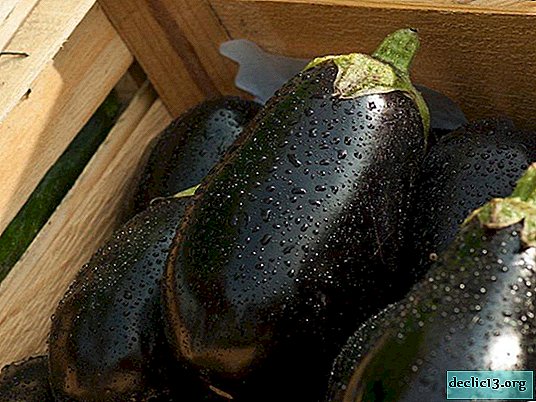How to provide lemon good yield and how to feed the plant at home and in the open ground?
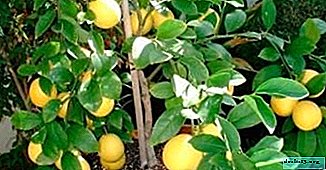
Lemon is not the most capricious plant, and therefore, its cultivation usually does not cause much trouble, however, in the absence of proper nutrition, even such an unpretentious tree can die.
The methods of fertilizing the soil, the types of fertilizers and the consequences that may be neglected by proper care will be discussed in this article.
The Importance of Feeding
 Timely application of fertilizers favorably affects the growth of any plant, moreover, in the case of a lemon tree, top dressing is important not only to maintain a healthy appearance of the plant, but also to increase the volume and quality of fruiting.
Timely application of fertilizers favorably affects the growth of any plant, moreover, in the case of a lemon tree, top dressing is important not only to maintain a healthy appearance of the plant, but also to increase the volume and quality of fruiting.
The shape, size, palatability of the fruit - all this also depends on fertilizers, the use of which cannot be neglected.
Dates of application and signs of lack of elements
Between the beginning of spring and the end of summer, fertilizers should be applied to the soil approximately once every two weeks, in the fall - once a month. How to feed lemon in the winter?
Attention! In winter, it is not necessary to feed the plant, because during the period of cold weather the tree falls into "hibernation", and the need for enhanced nutrition disappears.In any period external signs indicate a lack of substanceswhich are as follows:
- The loss of color brightness by the leaves or their yellowish tint, as well as a strongly pronounced network of veins, can be signs of iron deficiency. If on the leaves, in addition to all of the above, brown spots also appear, it means that the plant lacks manganese.
- If the foliage acquired a pale green color, and the veins became invisible against the general background, this indicates a lack of sulfur.
- The lack of calcium is also due to the dull shade of the leaves, but another sign of a deficiency of this particular element is the foliage rolling down. Almost the same symptoms are observed with a lack of boron, but there is one feature: leaves with a deficiency of boric acid are twisted outward, not inward.
- The copper deficiency is characterized by changes in the shape of the foliage, the dark color of the veins or the entire leaf plate, and in some cases also the appearance of a resinous crust.
Substances necessary for growth and good harvest
 Lack of any of the above elements will negatively affect the general condition of the tree and the quality of the fruit, but nitrogen, phosphorus and potassium are especially important for lemon.
Lack of any of the above elements will negatively affect the general condition of the tree and the quality of the fruit, but nitrogen, phosphorus and potassium are especially important for lemon.
Each of these substances affects the maintenance of citrus metabolism, provides growth and good yield, but only their complex application will lead to an improvement in the quality of the tree.
How and what to fertilize a plant in the open ground and indoor tree at home in a pot?
The method of fertilizing citruses in a pot at home is practically no different from fertilizing lemon trees growing in open ground. The key difference is that homemade lemons need to be fed more often, in small portions. To feed the lemon tree, both mineral fertilizers and organic fertilizers are used.
The pros and cons of each type of supplement are presented in the table:
| Organic fertilizer | Mineral fertilizers | |
| Assimilation efficiency | Organics decompose longer in the soil, and has a longer shelf life, but because of this, it is not suitable for emergency replenishment of a lack of a certain element. | They quickly dissolve and are absorbed by the plant, but also quickly and dry out, which is why it is necessary to use mineral fertilizers more often. |
| Effect on the soil | Contribute to the formation of humus and improve soil quality. | Do not affect the physical properties of the soil. |
| Price and ease of use | Natural organic matter has a low cost, but it is more difficult to use it due to the peculiarities of raw material preparation. Organic fertilizers in industrial production are easier to use, but their prices are much higher. | Cheaper than organic and easier to use, because it does not require laborious preparation, and the number of substances included in the composition is balanced. |
| Possible harm | Over time, improper use affects the quantity of the crop and the quality of the fruit. | They have a higher concentration, therefore, if the dosage is exceeded, they can cause significant damage and lead to the death of the plant. |
In this way, it is necessary to use both organic and mineral fertilizers, Because they complement each other and have unique advantages. The main thing: to comply with the measure, and be able to determine which substance is missing citrus.
Listed below are all the necessary micro and macro elements and the most common types of fertilizers:

- Nitrogen: sodium and calcium nitrate, ammonium sulfate and urea.
- Potassium: potassium chloride and potassium sulfate.
- Phosphorus: simple or double superphosphates, precipitate, thermophosphates.
- Iron: vitriol, pyrite cinders, ferric chloride.
- Calcium: dolomitic limestone, chalk, burnt and slaked lime.
- Magnesium: magnesium carbonate, magnesium sulfate, dolomite flour.
- Sulfur: simple superphosphate, ammonium sulfate, gypsum, potassium sulfate.
- Copper: copper sulfate, pyrite cinder.
- Boron: boric acid, borax.
Natural organic fertilizers suitable for feeding lemons are:
- horse dung;
- cow dung;
- chicken droppings.
Some gardeners also use folk remedies to fertilize citrus fruits. Of course, such methods of feeding lemon tree do not exclude the need for the use of mineral or organic fertilizers, but they can become an additional source of necessary substances. Examples of such fertilizers are:
- Wood ash (phosphorus, potassium). It is diluted with water in a ratio of 1: 1 (teaspoon of ash per teaspoon of water).
- Tea leaves (magnesium, iron, copper and others). To prepare the infusion, 1 cup of dry used tea leaves is poured with 3 liters of boiling water. Before watering, the infusion is cooled and filtered.
- Egg shell crumb mixed with starch (calcium). The soil is either simply sprinkled with this powder, or the mixture is poured with water, insisted and only then the lemon is watered with the resulting liquid.
- Baby quinoa (nitrogen). The crushed leaves of this plant are mixed with the topsoil in a pot.
- Nettle (calcium and magnesium, trace elements). To prepare the infusion, chopped leaves and stalks of nettles are poured with boiling water and close the container with a lid, leaving this mixture for 2 weeks. During this period, the infusion must be stirred daily, and after the completion of fermentation, the fertilizer is diluted with water in a ratio of 1:10.
During fruiting
During fruiting, as during flowering, citrus especially needs additional nutrition. You need to choose complex fertilizers and apply them regularly: every ten days.
Reference! The best result will be the alternation of mineral fertilizers with organic.Fertilizer overdose
Too much concentration of macro- and micronutrients in the soil can lead to diseases, lower yields, and sometimes to plant death. Thus, with an excess of nitrogen, the growth of shoots and leaves increases, but the lemon ceases to bear fruit, and due to a surplus of potassium, burns and necrotic spots can appear on the foliage, and the fruits will acquire an irregular shape and thick peel.
In order to reduce the concentration of one or another element, it is necessary to water the plant abundantly for several days, thereby washing out excess salts from the soil.
Optimal circuit
 The introduced substances for feeding vary depending on the onset of different months:
The introduced substances for feeding vary depending on the onset of different months:
- in March and April superphosphate and mullein infusion are used;
- in May, June and July - superphosphate, urea and potassium sulfate;
- but in August - all the same as in the beginning of summer, but with an increase in slurry and manganese.
In the fall, complex fertilizers are used, and in winter, if desired, it is possible to produce foliar top dressing.
What to look for when buying?
The main thing when buying food is to carefully study the label: fertilizer must be marked "for citrus".
One of the most common complex fertilizers for lemon is liquid fertilizer from the Bona Forte brand, which can be bought both in the online store and in retail stores.
The largest store where you can buy this fertilizer and products of other brands is Leroy Merlin. In stores in Moscow and Moscow, the cost of feeding Bona Forte for citrus fruits ranges from 120 rubles, in stores in St. Petersburg the price is lower - about 110 rubles for the same volume (0.285 l).
What will happen if you do not use organics and minerals?
Attention! The mineral substances contained in the purchased soil will last only for the first few months, after which the plant will certainly need additional nutrition.Failure to use fertilizers will result in:
- impaired growth and development of the lemon tree;
- foliage damage;
- deterioration in crop quality.
Thus, if you want to grow a healthy and beautiful citrus tree, achieve lemon blossom and harvest a good crop, you will need to feed the plant and carefully monitor its condition.
By timely introducing complex fertilizers into the soil, you will not only provide a sufficient amount of all mineral substances, but also save your own time and energy, because in the future you will not have to buy expensive micronutrient fertilizers to make up for the deficiency of one or another element.
Useful video
We offer you to watch a video in which experienced gardeners talk about the intricacies of dressing room lemon:


